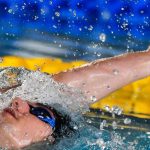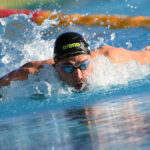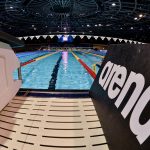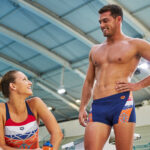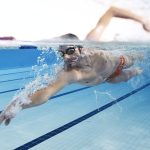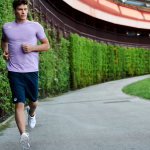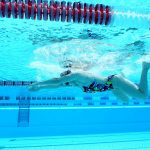Why Breaststrokers are a Breed Apart!
It is said that you are born a breaststroker, not made.
A bit like goalkeepers in football, they are seen as different, a breed apart.
Olympic and world 200m champion Daniel Gyurta happily admits breaststrokers are “a bit oddball”.
Not for them the preening, swagger and stardust of the freestyle sprints. Instead, laid-back seems to be a popular description.
Olympic 100m champion Cameron van der Burgh agrees you are born to swim breaststroke.
“I think probably, yes. I think the stroke is so different to anything else, we can’t race in freestyle or any of the other strokes and the other guys can’t race in our stroke.
“I think the mentality is so different… the personalities are completely different.”
Fellow 100m Olympic champion Ruta Meilutyte adds: “I don’t think I chose to be a breaststroker, it just happened I guess. I just started to love that stroke.”
Maybe one of the things that sets them apart is the emphasis on technique: if one element falters, the entire stroke is affected.
Ruta says: “I just really focus on the feel of the water and how I engage every part of my body to move as efficiently as possible in the water.
British swimmer Adam Peaty had a stellar 2014 when he didn’t so much step on to the international stage as hurtle on to it with a crash, bang, wallop.
Adam served notice to the breaststroke world at the Commonwealth Games with victory over Cameron – his idol and 2012 Olympic inspiration – before the South African edged him out in the 50m.
Adam then won four gold medals as well as setting a 50m world record at the European Championships in Berlin.
Next up was the World Short-Course Championships in Doha in December, three silver medals wrapping up the year.
It almost never happened though. As a child, Adam was terrified of the water and his fear led to screams and tears at bath-time. Getting him into the pool was even harder when he would climb up his mother’s arms.
Adam overcame his fears but when he moved to the City of Derby club, coach Mel Marshall was taken aback by his freestyle. And not in a good way. He was “clogging up the pool”.
However, he gave a glimpse of his breaststroke prowess and so began an athlete-coach partnership that has only really taken its first international step.
The 20-year-old admits: “When Mel first saw my freestyle I think she was threatening to throw me out. I didn’t blame her.
“As soon as she saw my breaststroke I think it was a game changer: she saw the potential in what I could do.
“The freestyle was a really bad stroke.”
Breaststroke comes naturally to him. “I don’t have to think about it in the race. That is one major advantage: I just think about the process of the race – what time I have to be out in, what time I have to be back in.
“Most people struggle with breaststroke but it’s simple for me.
Written by:
Elizabeth Byrnes
Liz swam with a local club in Sheffield, England, as a child before retiring at the grand old age of 12. Her lifelong love of the water, combined with a passion for travel, has seen Liz plunge into pools across the world. Liz spent 12 years with the Press Association reporting on swimming and athletics at Olympic and World level but is now fulfilling a dream as a freelance writer. When not in or around the water, she can be found hiking, running and cycling.
